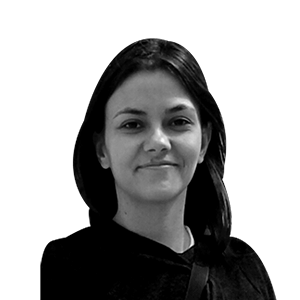The conclave to elect the pope will begin on May 7.
The meeting of cardinals is highly uncertain and it is not known how long it will last.


RomeThe conclave to elect the new leader of the Catholic Church will officially begin on May 7. Its outcome is unpredictable, but the Vatican machinery is already in motion. Conservatives, progressives, traditionalists, reformers 'yes, but not too much'... Francis died leaving a college of cardinals more polarized than ever, divided between those aligned with the progressive Church he promoted and a conservative minority, orphaned by the death of Benedict XVI, who want the new Pope.
The delicate health of Pope Francis and speculation about a possible resignation following in the footsteps of his predecessor had recently led to an almost permanent state of 'pre-conclave' in the Vatican. A list of possible successors had been circulating for months. A journey of 'papatable' candidates as broad as it was uncertain.
Throughout his 12 years of pontificate, Francis designed a new ecclesial geopolitics and also left as a legacy one of the largest (252) and most heterogeneous colleges of cardinals in living memory, in which almost 80% of the members have been appointed by him. An assembly of bishops more international than ever, far from the centers of power, with cardinals from more than 70 countries, some coming from corners of the world hitherto unrepresented or where Christianity is practiced by a minority, such as Algeria, Lesotho, or Iran, and with a profile very similar to his own.
New faces for a rejuvenated college of cardinals, such as the Ukrainian Mykola Bychok, bishop of the Australian city of Melbourne, who, at 45 years of age, will be the youngest 'papable' of the assembly after being ordained a cardinal in the last consistory. A title that until then belonged to the 51-year-old Italian missionary Giorgio Marengo, apostolic prefect of Ulan-Batur, Mongolia.
The problem is that many don't even know each other. Some probably met for the first time this week. Last Tuesday, the day after the Pope's death, the first congregation of cardinals was held; the assembly in which the cardinals meet to decide the immediate steps after the Pontiff's death, such as the date of the funeral. All the cardinals present in Rome are participating, not just those entitled to vote because they are under 80 years old (133). And they are joining as they arrive: on Friday there were 149.
Their most immediate mission will be to decide the start date of the conclave, which should be held between 15 and 20 days after the death of the Pontiff and will be convened once the nine-day period of mourning following the death of the 'Novendiales' has ended.
But once Francis is buried, these absolutely confidential meetings (under threat of excommunication) become a kind of forum where they can reflect on the future of the Church, the profile of the Holy Father close to them... and begin campaigning.
It is in these daily pre-conclave meetings held in the Synod hall where the successor is actually elected. That is how it happened last time. The decisive moment was on March 9, 2013, three days before the electors entered the Sistine Chapel. The then Archbishop of Buenos Aires, Jorge Mario Bergoglio, stood before his "brother" cardinals and read a brief speech that dispelled any doubts about his suitability. And in the process, he outlined what would become the roadmap for his pontificate.
"The Church is called to go out of itself and go to the peripheries, not only the geographical ones, but also the existential ones," he asserted after scolding those present for the financial scandals and clerical sexual abuse that shook the Vatican during Ben's pontificate. The cardinals' interventions are confidential, but Francis's speech became known because Cuban Cardinal Jaime Ortega, impressed by what he had just heard, asked Bergoglio for the text.
"The discussion has just begun," said progressive Cardinal Reinhard Marx this week, former leader of the "rebel" German bishops who challenged Francis to accelerate reforms such as priestly celibacy outside the Church of Rome. "But the conclave will only last a few days," the cardinal added. A prediction, or perhaps just an omen, which shows that when the Master of Pontifical Liturgical Ceremonies pronounces the Latin words "Extra Omnes" (everyone out) and the doors of the Sistine Chapel close, the decision will probably already have been made.
